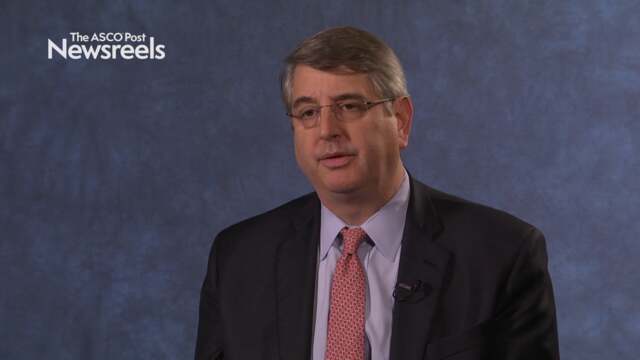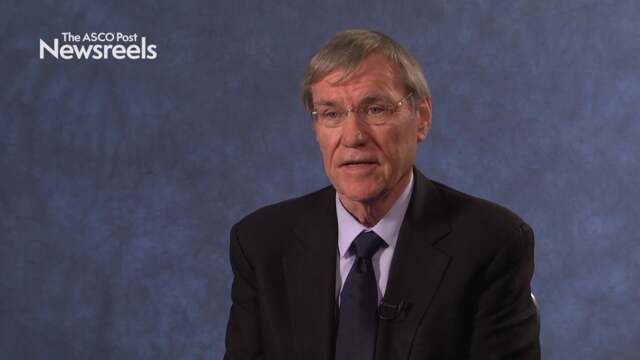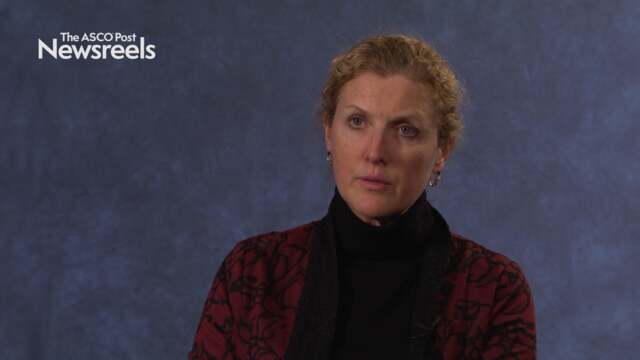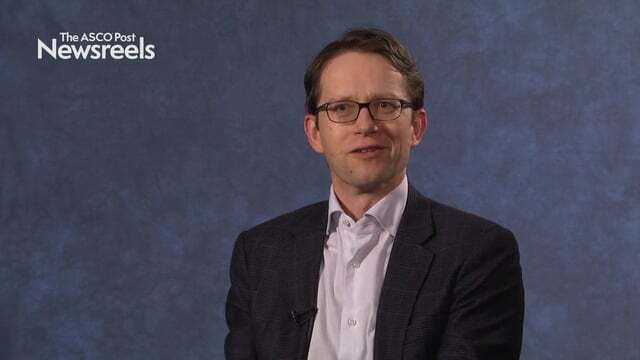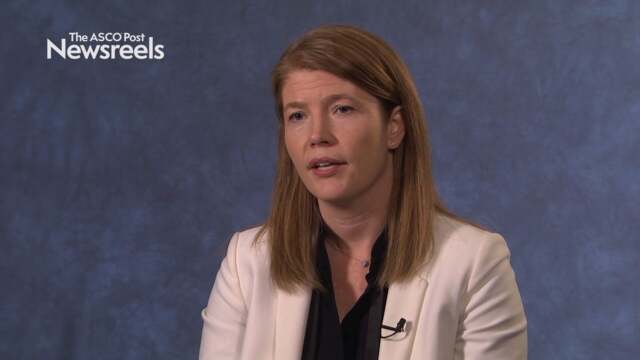Matteo Lambertini, MD, on Preserving Fertility in Patients With Early Breast Cancer: Pooled Analysis
2017 San Antonio Breast Cancer Symposium
Matteo Lambertini, MD, of the Institut Jules Bordet, discusses the results of five clinical trials investigating temporary ovarian suppression with gonadotropin-releasing hormone analogs during chemotherapy as a strategy to preserve ovarian function and fertility in premenopausal early breast cancer patients (Abstract GS4-01).
Harold J. Burstein, MD, PhD, of the Dana-Farber Cancer Institute, discusses study findings on a comparison of adjuvant tamoxifen plus ovarian function suppression vs tamoxifen in premenopausal women with hormone receptor–positive breast cancer (Abstract GS4-03).
Rowan T. Chlebowski, MD, PhD, of the City of Hope National Medical Center, discusses 11-year followup results that showed a significantly lower breast cancer incidence among women with a greater than 5% weight loss (Abstract GS5-07).
Lisa A. Carey, MD, of the University of North Carolina, discusses the long-term follow-up of CALGB 40502/NCCTG N063H, a phase III study of weekly paclitaxel compared with weekly nanoparticle albumin bound nab-paclitaxel or ixabepilone with or without bevacizumab as first-line therapy for locally recurrent or metastatic breast cancer (Abstract GS3-06).
Nicholas C. Turner, MD, PhD, of The Royal Marsden Hospital NHS Trust, discusses the challenges of treating metastatic breast cancer and how liquid biopsies can serve as a guide to genetic phenotypes.
Melinda Telli, MD, of the Stanford University School of Medicine, discusses the current status of treatment for advanced TNBC, and new therapeutic strategies now being used for better outcomes.
